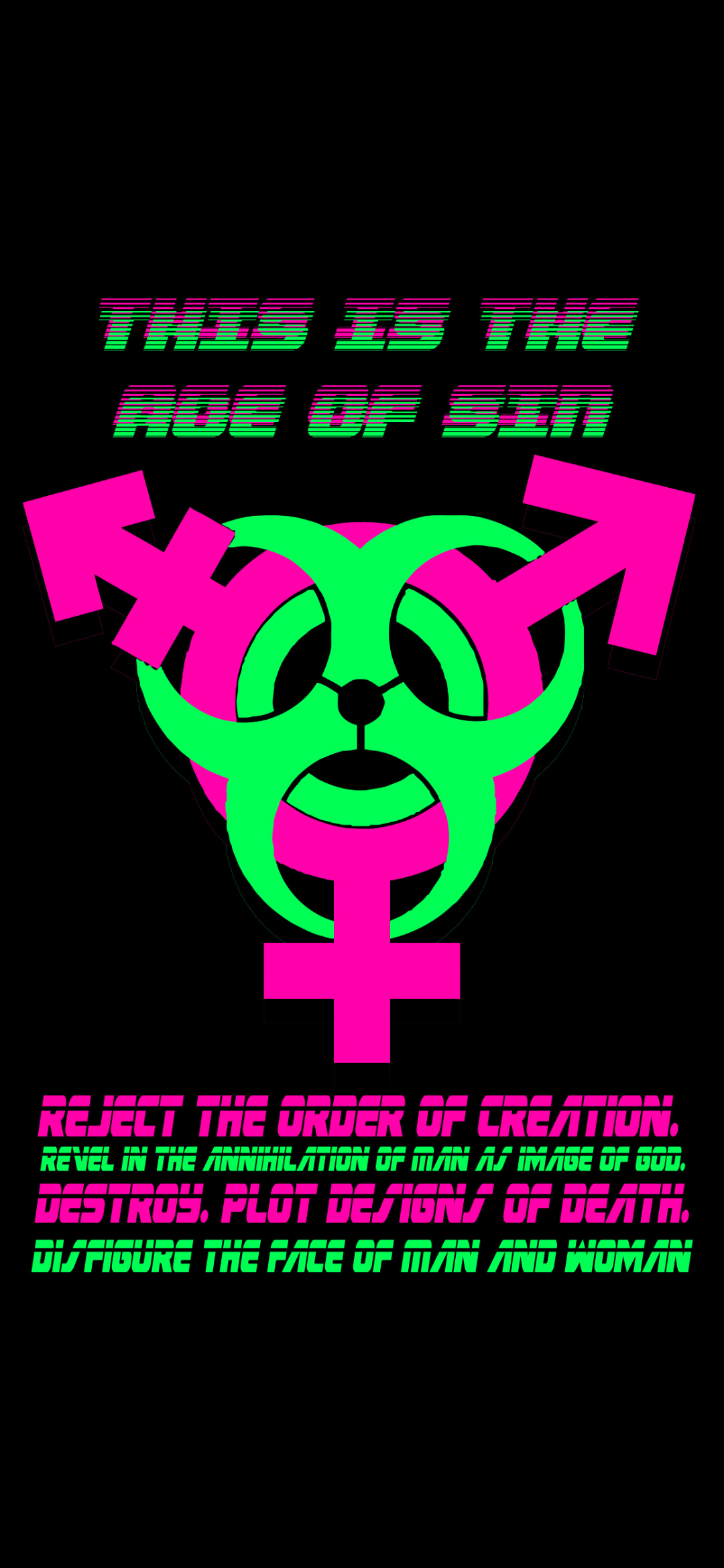I can think of some obvious examples to start with, but my subtle but insidious nominee is Fable III. Fittingly for a pretentious grifter like Molyneux, the game requires you to raise a specific amount of gold or your kingdom is destroyed and you get a bad ending. The goalposts are moved by the game if you raise money in ways it doesn’t approve of, and it is simply impossible to reach the fundraising goal in any way that isn’t at least Enlightened Centrist levels of evil, the kind that lanyard-wearing neoliberals giggle about. That’s right, you need to be at least this evil or your kingdom is destroyed. So deep and really makes you think about the hard decisions that are made by the ruling class, doesn’t it? :zizek:
The Last of Us 2
Neil Druckmann was raised in Israel and has stated that the game’s “cycle of violence” theme is modeled after his understanding of the Israel-Palestine conflict. The game both-sides the conflict between the main factions, making you switch perspectives between the two main characters repeatedly.
The ending of that game for me was a drudge. I was invested so I kept playing, but emotionally I just wanted it to be over and I had a feeling very similar to watching someone self destruct their life and knowing you can’t stop them. I felt pity and sadness and frustration. Apparently that was not the intended effect:
“I landed on this emotional idea of, can we, over the course of the game, make you feel this intense hate that is universal in the same way that unconditional love is universal?” Druckmann told the Post. “This hate that people feel has the same kind of universality. You hate someone so much that you want them to suffer in the way they’ve made someone you love suffer.”
I suspect that some players, if they consciously clock the parallels at all, will think The Last of Us Part II is taking a balanced and fair perspective on that conflict, humanizing and exposing flaws in both sides of its in-game analogues. But as someone who grew up in Israel, I recognized a familiar, firmly Israeli way of seeing and explaining the conflict which tries to appear evenhanded and even enlightened, but in practice marginalizes Palestinian experience in a manner that perpetuates a horrific status quo.
“cycle of violence” theme is modeled after his understanding of the Israel-Palestine conflict
understanding
:chesus:
Company of Heroes 2 which portrays the USSR as evil for conscripting its people to fight in die in a “pointless” war to… checks notes …defend itself from an army hellbent on waging a war of extermination against it. But that’s just low-hanging fruit.
For something more subtle, I’d say most games that lament the “Evils of Humanity” feel pretty reactionary. The idea that something bad is inherent to humans (war, crime, bigotry, corruption, etc) and we just have to learn to accept it, without any other investigation into the matter. One game that comes to mind is Shin Megami Tensei: Strange Journey Redux where
spoiler
the new ending has the main character turn immortal and get stuck into an endless cycle of needing to purge the Dark World over and over again because humanity cannot stop its self-destructive tendencies. Keep in mind that this is supposed to be an allegory for climate change.
The Civ series is basically Whig History: The Game.
Oh I mean easily what springs right to mind is Call Of Duty. I mean the games are literally made in cooperation with the department of defense and are drunk off the american exceptionalism with real might makes right fashy undertones. I find almost directly responsible for the hero worship we have for special forces in the USA, as most of these games have you working as a spec ops goon.
Which one of those propaganda pieces pretending to be games had evil South Americans steal a doomsday weapon from the United States (only evil in their hands of course), but when your elite black ops tacticools seize it back, you save the day by using the same doomsday weapon on those scary evil foreigners? :amerikkka-clap:
OOooo look at the poor widdle north amerika sooo weak and demoralized by the evil brown man… :( :( :( :( will you help us save them?? would you still love us?? :((( ??? you probably wouldnt :( :( :( or would you :) :) ;)
Oh I think that was one of the ghost games, I think? Wasn’t it an orbiting rail cannon or something?
The unionized neurons in my brain were going to go on strike if I paid any more attention than I did, so you tell me. :kombucha-disgust:
Yeah I wouldn’t know, the only CoD games I played for the first couple WWII ones and Modern Warfare 1, that was enough for me.
So glad the only COD I ever played was the first level of Finest Hour, where you’re a Soviet soldier killing Nazis in Stalingrad
WaW us pretty good, but the rest, yeah…
It’s all downhill from there.
I still can’t believe the “No Russian” thing was a real thing, what the fuck was that. That was some CIA conditioning bullshit I swear to god
I’m surprised no one here has mentioned Assassin’s Creed yet. All conflict in history stems from two competing ideological sects of callous murderers who wanton manipulate populations into doing their bidding and for some reason one side in this conflict is supposed to be the moral superior of the other. Also some of the supplemental material is batshit and basically just a way for the devs to denote certain historical figures as good or bad depending on what organization they belonged to. All other conflicts are secondary to the overarching philosophical differences of two sects competing for magical thingies.
At the same time those games have probably the most sympathetic portrayal of Marx in a western piece of fiction, so there’s that.
they made marx a lib which is argubly worse
Yeah, they made him a weird pacifist utopian who was against revolution
Tbf I think he was criticizing propaganda of the deed anarchists, it’s a big factor in the split of the first internationale.
Right, a lib.
…no, banishing anarchists from the first internationale didn’t make him a lib
Intensely lib, in a manner that has not been successfully conveyed until Ubisoft got their hands on him.
You guys really haven’t read a lot of Marx’s correspondences, have you?
Been thinking a lot about the ideology of Chess recently. The game goes back to ancient India and was designed to teach young men about army tactics. So in a way it was a bit like how COD prepares young men to join the military.
It changed into it’s modern form in Spain, where it traveled with Islam and was adopted by the spanish. I believe the original pieces represented infantry (pawns), cavalry, chariots(bishops) and elephants (rooks). The “queen” was then male and considered the “advisor” and moved like the king. Just as Isabela became the most powerful queen in the last 500 years of Europe, the advisor was changed to queen and the became the most powerful piece. Pawns also got their ability to become queens, which, being called “promotion” may be a reference to the original role as “advisor” but may also reflect a king’s ability to marry anyone and therefore make them a powerful queen. It was also during this time that the diagonal piece was named the “bishop,” representing the power of the church and flanking the monarchy, closer even than the knights to the king and queen.
This is all to be expected, I guess. What I find insidious about the game is simply the “black vs. white” color scheme. Could it have been lost on the Spanish that their skin color was lighter than the Muslims they fought? Is it lost on modern players that the white pieces are superior to the black (white has the advantage of going first and therefore is more likely to win)?
Another subtly insidious aspect is the widespread understanding that the computer knows better than humans. People who are good at chess are thought of as smart, therefore, even smarter is an AI that can beat the best players. Because the rules of chess are simple and the goal of checkmate is concrete the AI has an exact purpose and can be trusted to seek that purpose. The AI is therefore “always right.” This might produce in players a habit of deferring to computer generated models, forgetting that in real life the purpose and limits of a computer program can vary wildly and are set by it’s creator
This is all to be expected, I guess. What I find insidious about the game is simply the “black vs. white” color scheme. Could it have been lost on the Spanish that their skin color was lighter than the Muslims they fought? Is it lost on modern players that the white pieces are superior to the black (white has the advantage of going first and therefore is more likely to win)?
Careful with applying modern American interpretations of race to medieval Spanish history. Ain’t very historical materialist.
It’d be a good research topic though.
Hearts of Iron: Nazi whitewashing. Nazi fantasy simulator. Goddamn fucking Nazi fanbase.
Europa Universalis: Colonial Nazi simulator with religious persecution button, Pogrom button, slave trading button, honestly more offensive than HOI because all the atrocity is extremely normalised and in fact optimal play
Red Alert is pretty bad as the Soviet Union gets hit hard with the villain bat.
Outer Worlds is also bad. Present a capitalist hellscape with anarchist and communist factions, and everything other than mild succdem stuff fails.
The Soviet campaign in Red Alert turned me!
I mean, they’re the more fun faction, but they are also depicted as imperialists who love killing civilians.
Also, it makes Einstein into a lib.
the USSR in red alert is a villain in the same way Dr Robotnik is
sure they’re the bad guys but like, they absolutely rock
Red Alert 1 having Stalin as some expansionist warmonger is hilarious if you actually, you know, read history.
They should have gone for Trotsky instead. Even if that would be a hyperbole of his ideology, he would at least fit more.
What would an ideologically good game look like?
- Guerilla: First person shooter where you play as a guerilla army against imperialists. Campaigns could include playing as the Viet Cong, Yugoslav partisans or in the Cuban Revolution.
- Organizer: Tycoon-style game where you play as a union organizer. You start out in a chuddy workplace where everyone is drenched in false consciousness. You start out by winning small victories, organizing and eventually unionizing. The game doesn’t stop there though, the struggle to organize continues until the entire capitalist system has been dismantled.
- City planner: City builder game from a working class perspective where you have to build a livable and sustainable city. The game will penalise car-centric infrastructure and single family homes for anything above village size. The options for transit infrastructure are detailed and offers many different options.
- Great Patriotic War: It’s WWII. You kill Nazis for the Soviets.
- Bolchevik: RPG set during the Russian revolution and civil war.
Idle clicker game where you :gui-better: capitalista
Reverse Factorio. The world is covered in a giant machine. Tear bits of it off to make flower pots, raise the few plants that can grow in this polluted environment, build up an ecosystem.
Real :no-copyright: hours!
I like the idea of a city planning game that rewards a higher floor on material conditions in its entire supply chain, free time, and environmental sustainability, then watch various forms of socialism naturally become the only way to win.
City planner: City builder game from a working class perspective where you have to build a livable and sustainable city. The game will penalise car-centric infrastructure and single family homes for anything above village size. The options for transit infrastructure are detailed and offers many different options.
You just described Workers and Resources: Soviet Republic.
This Land Is My Land if it hadn’t been made by a shithead.
Portrayal is endorsement, so Disco Elysium is obviously a nazbol centrist hyper-capitalist game.
House Flipper just serves to normalize the idea of housing as a commodity. In a vacuum it is not the worst game, in fact it is quite competent though.
In Shadow Hearts: Covenant, you pal around with a goddamned Romanov.
And fight the ancient sorcerer Lich version of Grigori Rasputin from the 90’s cartoon. The presence of a talking bat in this game is coincidental and completely unrelated.
Dishonored.
Don’t get me wrong, I love all the Dishonored games (Death of the Outsider is my favourite), but there is a deeply liberal undercurrent to the series.
Both mainline games are about getting rid of the bad aristocratic tyrant and replacing them with the “good” and “rightful” heir to the throne of Dunwall. The most telling part of this is the conflict between the Abbey of the Everyman and any supernatural covens/gangs like the Bridgemoore witches or Daud’s Whalers.
Both the Whalers and the witches have specific complaints within society; the Whalers are comprised of former gang members and disenfranchised labourers radicalised by the inequality in Dunwall, whereas the Bridgemoore witches are a radical feminist movement. Conversely the Abbey of the Everyman is a calvinist cult that carries out brutal crackdowns of anyone perceived to be a witch. Despite this the Abbey of the Everyman is consistently framed as being terrible but still the lesser evil. The Overseers essentially fall into the “woke” liberal defence of policing, “Yeah sure they’re bad, torturing and murdering randos and all that. But what are you gonna do if a witch turns up and starts killing people? That’s why we need more Overseers and they need to be increasingly militarised.”
When Delilah Copperspoon takes control of Dunwall and thus the Empire of the Isles, the Bridgemoore witches begin committing mass murder on the streets because… I don’t know they’re the baddies.
Time and time again the series shows any attempt to change the status quo resulting in pointless bloodbaths and mindless chaos, a status quo that need I remind you is a combination of Dickensian squalor and the Spanish inquisition.
Any changes that happen for the better, happen within the confines of the system. The miners union is the one group that is shown to be uncomplicatedly good, but even they are ineffective in timelines where the duke owns the mine because the union is only using peaceful protest. A kinda washed down vision of historical labour struggles.
The series is deeply critical of the aristocratic class. Every entry in it depicts them as selfish hedonists who’ll bleed a beggar to death if they think it will get them a good high at best, and brutal eugenicists willing to let a disease ravage the population in order to get rid of “undesirables” at worst. But this criticism falls weak when the right answer time and time again is always “replace the bad toffs with good toffs”.
The system isn’t a problem it’s the people, in other words.
XCOM: Chimera Squad. 👏 More 👏 xeno 👏 SWAT 👏 teams 👏
All problems can be solved by kicking in the door guns blazing. Don’t have any evidence? Don’t worry, if you bust in and kill everyone, maybe you’ll find some!
We’ve fought long and bitterly against our subjugation. Now that humanity has access to literal space-age technology, we can grow as a united civilization to great heights!
Wait, it’s just the same as before but with aliens? Okay then…
I recently played C&C Generals, thought the ideology there isn’t “subtle but insidious”, but rather just hilariously blatant.
Dr anthrax is the best character ever made














